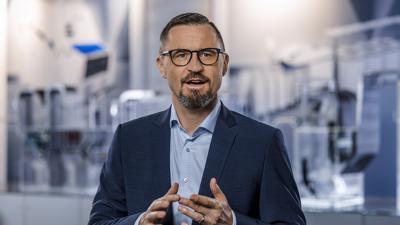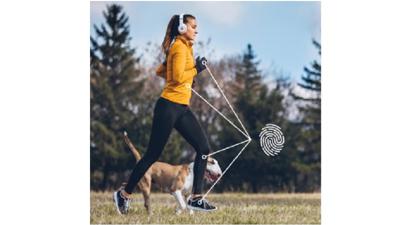
Tomorrow, the Olympics of the textile industry, the ITMA, will open its doors in Milan/Italy. ITMA 2023 highlights innovations that will help textile and garment manufacturers transform and grow their business. The event will bring together stakeholders across the entire value chain to review the issues of the day, communicate, collaborate and ensure that we will have a sustainable future.
Transforming the world of textiles – that is this year's ITMA motto. What is your response to this? What is the motto of your trade show participation?
The world of textiles is indeed ready for its next transformation. Many reports show the textile industry's impact on greenhouse gas (GHG) emissions, which is essential for the textile industry to focus on improving. Consumer awareness of eco-conscious materials is increasing, and we can expect the regulatory framework to also change in the coming years. At Avient, we aim to provide specialized and sustainable materials that can transform customer challenges into opportunities. We acknowledge that we are only a part of a product’s life cycle and believe in a “better together” approach when working with others along the value chain. Especially in the textile industry’s long and complex supply chains, it's important that all key players work together to deliver more textile products that enable sustainability. As a provider of colorants and additives, we continuously work with yarn producers, raw material providers, and brand owners to refine our portfolio. So, our motto would be, “Solving today’s and tomorrow’s textile challenges together.”
What is the most interesting topic/technology you will present at the ITMA?
Like many other exhibitors, we will present solutions to help increase the sustainability of textiles. However, our portfolio spans different technologies. At the ITMA, we will highlight not only our portfolio of colorants and additives for spin-dyeing but also our portfolio of textile dyes, chemicals, and finishes. Both portfolios include sustainable solutions that can help reduce energy use, support recycled content use, improve human health, and promote eco-consciousness. Examples include low-temperature wash-off agents for reactive dyes, processing aids for recycled fibers, antibacterial and antiviral solutions, and perfluorochemicals (PFCs) replacements. This provides yarn producers and brand owners an opportunity to discuss fiber solutions for the technology they know and use or discover other portfolios and technologies with our experts at our ITMA stand. Overall, Avient is here to help solve customers’ challenges.
What do you hope/expect from the ITMA 2023?
We hope our attendance at the ITMA helps increase awareness among brand owners and yarn manufacturers about the sustainability benefits of the spin-dyeing process, a.k.a. dope-dyeing. Spin-dyeing is a one-in-one process that uses no water and requires less energy than traditional bath-dyeing technology. It is suitable for extruded fibers, which are mainly polyester and polyamide. Compared to bath-dyeing, which involves producing the undyed yarn first and then dyeing it in a bath, spin-dyeing involves adding color while manufacturing the yarn. This results in fewer steps from the raw material (polymer pellets) to the dyed yarn, reducing the energy needed during production. It’s also a dry dyeing process that uses the colorant as a concentrate (a.k.a. masterbatch) pellets and doesn’t involve water or create wastewater. As a long-time provider of colorants for the spin-dyeing method, we see it as a good dyeing alternative for textile products that don’t go through frequent color changes, e.g. brand colors, evergreens, and technical textiles.
What are the biggest challenges for the textile industry right now?
In addition to increasing the sustainability of textiles, traceability is another challenge that is on the rise, especially when it comes to sustainability labels. The stark increase in sustainability claims on labels has led to recent concerns about potential greenwashing by sustainability associations and consumer groups. Certifications delivered by independent certifying bodies help safeguard processes and increase consumer trust. Avient’s site in Taoyuan, Taiwan, recently received the GRS 4.0 certification and bluesign System Partner accreditations. The site produces colorants and additives for polyester fibers used in casual wear and sportswear applications, which are now increasingly expected to include more recycled content.
Avient also recently developed low-investment traceability solutions that are incorporated in the yarns during the spin-dyeing process or, in the case of recycled fibers, added to the recycled content (e.g. PET flakes, shredded nylon (PA) fishing nets) before it’s extruded into polymer pellets. Including tracers within textiles can make it possible to confirm the origin of yarns from a specified fiber manufacturer’s production stream, which in turn would support the label's claims of including recycled content.
These recent advancements highlight Avient’s continuous efforts to reduce environmental impact and focus on a more sustainable future for the textile industry.
Bluesign = registered trademark



